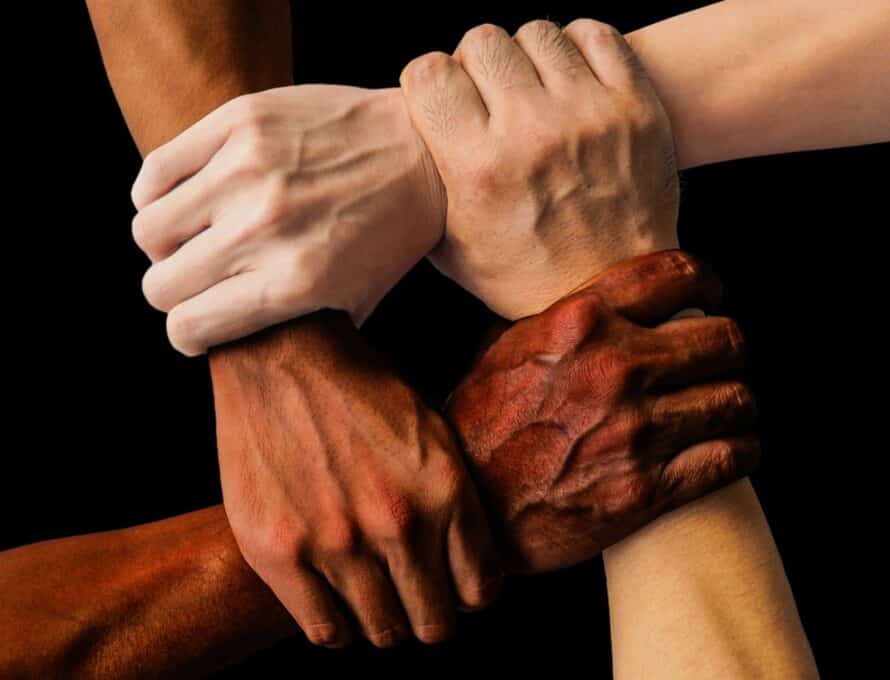EDITOR’S NOTE: Joanna Gonzalez-Mendez is a member of Ridgecrest Baptist Church, Springfield, and a member of the Missouri Baptist Convention’s Racial Reconciliation Task Force.
Being an immigrant is an identity that I have learned to appreciate. It has taken time to grasp the complexity of my immigrant story, the impact that it has had in my life and in the way others see me. It has also shaped and informed my understanding of the gospel.
In Scripture, one of the most prevalent themes is of people journeying in and out of a land. The Old Testament narrates a story of displacement and the hope for a Promise Land. The New Testament narrates the story of a Savior who left his throne to restore humanity’s relationship with God.
In many ways the Scripture has provided me with a sense of belonging. My struggle to find my place and the promise that He has prepared a home for me is narrated in its pages.
Unfortunately, the local church has not always been the refuge that I have needed. The assumption that I should assimilate to how the dominant culture conducts church has led to an unsought isolation. It has fostered this unspoken expectation that I should leave who God created me to be at the door, so that I may conform to the culture surrounding me.
However, in the process of assimilating to main stream Christianity I feel I lost myself. I seem to have surrendered who God created me to be. As I have depended on my walk with God, and understand God’s intention in creating the ethnos, I have realized that He is not asking me to give up who He created me to be. He cherishes and values the unique perspective and experiences that I bring. He loves and wants diversity within the local church (Gal. 2:11-14).
I love the local church. I believe in the Bible and approach it with reverence. I trust in God’s sovereignty and his love for the nations. However, many times I have found myself at odds with the religious discourse within the local church. My struggles and experiences are excluded from the pulpit and biblical exegesis. Lack of interest, knowledge and/or fear of stepping into politics sets any biblical conversation to the sidelines, making it difficult for individuals like me to find a voice.
Ethnic and racial reconciliation is personal to me. It opens the possibility for immigrants, like me, to have a voice and to be included in the dominant culture of the local church. However, it would be a mistake to assume that the sole purpose of such types of conversations are only for the sake of the marginalized. These conversations are important for the local church, its leaders, and members alike. It is about reshaping our understanding of loving one another as mandated by Christ (John 13:34-35). It is not easy!
As an active member of a predominant white church, I have been challenged and blessed to be stretched. However, there is a difference between being spiritually challenged and being culturally and ethnically marginalized. The local church should be the place where believers of all ethnic, cultural and social backgrounds are recognized as essential, a coequal part of the church. It is not enough to have an open-door policy and lack the intentionality and structure to successfully integrate, accept and support diverse individuals and families.
The church needs to be willing to embrace the unique cultural expressions of those who are different from them. The church needs to be open and willing to learn from them as well as being led by them. This kind of church demands that all parties humbly come to the table. Not with a program to be adopted but with a heart that unpretentiously listens and is open to what God has for the local church today.
Our country’s demographic is changing. As gospel-centered churches this reality should not trouble us, but rather empower us. We cannot afford to continue to be naïve in believing that reaching the nations with the gospel is something that happens outside our borders, and that ethnic ministry is reserved for the few that have been called.
Ethnic and racial reconciliation is not the goal, but rather it’s a tool to help us heal and restore what God intended for his body to be. It will allow us to continue to be the agents of healing and Good News that God has commanded us to be.
Personally, I am committed to Revelation 7:9 not only as a dream and hope for our future, but to its present truth in our local churches. I look forward to being amazed by where God will lead the local church as we learn to welcome, reach, love and include the nations within our own backyard.

